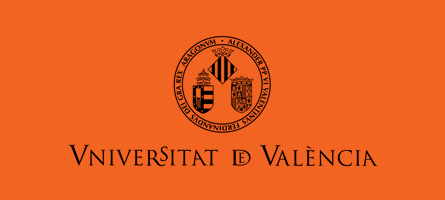Analysis of the websites of Castile and León’s parties in the regional elections of 2015
DOI:
https://doi.org/10.7203/rd.v2i3.93Abstract
This paper examines websites of political parties in Castile and Leon from a dual perspective. A qualitative and quantitative analysis is conducted in order to approach to regional elections in Spain of 2015. From the analysis of content and observation, it is quantied and describes to what extent these parties have incorporated the characteristics and possibilities oered by the Internet in political communication. The results indicate that webs do not have a high quality and their development is low, specically in updates or interaction with voters, for instance.
References
Abellán García, A. y Pujol Rodríguez, R. (2015). El estado de la población mayor en España, 2015. Indicadores estadísticos básicos. Consejo Superior de Investigaciones Científicas (CSIC). Madrid, Informes Envejecimiento en red nº 10. Disponible en Internet: http://envejecimiento.csic.es/documentos/blog/El-estado-de-la-poblacion-mayor-en-Espana-2015.pdf [Consulta: 28 de Noviembre de 2016]
Aggio, C. y Reis, L. (2015) “Campanha eleitoral no Facebook: usos, configurações e o papel atribuido por três candidatos eleitos nas eleições municipais de 2012”. En: Aldé, A., Marqués, F. P. J. Internet e Poder Local. (pp. 49-78). Salvador: Edufba. Disponible en Internet: http://www.compolitica.org/home/wp-content/uploads/2013/05/GT-04-%C3%94%C3%87%C3%B4-Internet-e-Pol+%C2%A1tica-Camilo-Aggio.pdf [Consulta: 28 de Noviembre de 2016]
Anduiza, E. (2009). “Internet, campañas electorales y ciudadanos: el estado de la cuestión”. Quaderns del CAC, (33), 5-12. Disponible en Internet: http://www.cac.cat/pfw_files/cma/recerca/quaderns_cac/Q33_Anduiza_ES.pdf [Consulta: 28 de Noviembre de 2016]
Arias Valencia, M. M. (2000). “La triangulación metodológica: sus principios, alcances y limitaciones”. Investigación y educación en enfermería, 18(1), 13-26. Disponible en Internet: http://www.redalyc.org/articulo.oa?id=105218294001 [Consulta: 28 de Noviembre de 2016]
Braga, S., Becher, A. y Nicolás, M. A. (2012). “Clientelismo, internet e voto: A campanha nos websites dos candidatos a vereador no Brasil Meridional”. Paraná Eleitoral, 1(1), 61-78. Disponible en Internet: http://www.justicaeleitoral.jus.br/arquivos/tre-pr-parana-eleitoral-revista-1-artigo-5-sergio-braga-e-outros [Consulta: 28 de Noviembre de 2016]
CIS (Centro de Investigaciones Sociológicas). Postelectoral elecciones autonómicas 2015. Comunidad autónoma de Castilla y León. Estudio nº 3094. Disponible en Internet: http://www.cis.es/cis/export/sites/default/-Archivos/Marginales/3080_3099/3094/es3094mar.pdf [Consulta: 28 de Noviembre de 2016]
CIS (Centro de Investigaciones Sociológicas). Preelectoral elecciones generales 2015. Panel (1ª fase) Estudio nº 3117. Disponible en Internet: http://datos.cis.es/pdf/Es3117mar_A.pdf [Consulta: 28 de Noviembre de 2016]
Cornfield, M. (2004). Politics Moves online: Campaigning and the internet. Nueva York: The Century Foundation.
Dader, J. L. y Díaz Ayuso, I. (2008). “Las webs de partidos españoles 2004-2005: Una investigación preliminar y de comparación europea, con una propuesta metodológica”. En: Canel, M. J. y Gurrionero, M. G. Estudios de Comunicación Política. (pp. 419-444). Madrid: Asociación Comunicación Política.
Dader, J. L., Cheng, L., Campos-Domínguez, E., Quintana, N., y Vizcaíno-Laorga, R. (2014). “Las webs de los partidos españoles en campaña electoral. Continuismo entre 2008 y 2011”. Trípodos, (34), 115-152. Disponible en Internet: http://www.tripodos.com/index.php/Facultat_Comunicacio_Blanquerna/article/viewFile/169/74 [Consulta: 28 de Noviembre de 2016]
Gibson, R. y Ward, S. (2000). “A proposed methodology for studying the function and effectiveness of party and candidate web sites”. Social Science Computer Review, (18), 301-319.
Gomes, W., Fernandes, B., Reis, L., y Silva, T. (2009). “Politics 2.0”: Barack Obama's on-line 2008 campaign”. Revista de Sociologia e Política, 17(34), 29-43. Disponible en Internet: http://www.scielo.br/scielo.php?script=sci_arttext&pid=S0104-44782009000300004 [Consulta: 28 de Noviembre de 2016]
Iasulaitis, S. (2007). “Internet e Propaganda Política no Brasil: limites e posibilidades”. Estudos de Sociologia, (23), 153-172. Disponible en Internet: http://seer.fclar.unesp.br/estudos/article/view/504/392 [Consulta: 28 de Noviembre de 2016]
Leushner, K. (2012) “The use of the internet and social media in US Presidential campaigns 1992-2012”. Project presented to the Faculty of the Undergraduate College of Arts and Letters James Madison University, (56). Disponible en Internet: https://es.scribd.com/document/89567708/The-Use-of-the-Internet-and-Social-Media-in-U-S-Presidential-Campaigns-1992-2012 [Consulta: 28 de Noviembre de 2016]
Mancini, P. y Swanson, D. L. (1995). Politics, Media and Modern Democracy: an International Study of Innovations in Electoral Campaigning and their Consequences. Londres: Praeger.
Massuchin, M. (2015). Campanha eleitoral e internet no Brasil: uma análise comparada do conteúdo informativo dos websites nas disputas majoritárias de 2012 e 2014. Tesis (Doutorado en Ciência Política). Universidade Federal de São Carlos, São Carlos.
Norris, P. (2000). “Democratic Divide? The Impact of the Internet on Parliaments Worldwide”. Harvard University: John Kennedy School of Government. Disponible en Internet: https://www.hks.harvard.edu/fs/pnorris/Acrobat/apsa2000demdiv.pdf [Consulta: 28 de Noviembre de 2016]
Norris, P. (2003). “Preaching to the converted? Pluralism, participation and party websites”. Party politics, 9(1), 21-45. Disponible en Internet: https://www.hks.harvard.edu/fs/pnorris/Acrobat/Preaching.pdf [Consulta: 28 de Noviembre de 2016]
Oblak, T. y Zeljan, K. (2007). “Slovenian online campainging during the 2004 European Parliament election: struggling between self-promotion and mobilization”. En: KLUVER, Randolph; Jankowski, N.; Foot, K.; y Schneider, S. M. The Internet and National Elections: a comparative study of web campaiging. (pp. 60-76). York: Routledge.
Scarrow, S. E. (2014). Multi-Speed Membership: Evidence and implications. Paper presentado en ECPR, Salamanca. Disponible en Internet: https://ecpr.eu/Filestore/PaperProposal/e6c836a5-f1b2-4717-814c-786275ce2da2.pdf [Consulta: 28 de Noviembre de 2016]
Stromer‐Galley, J. (2000). “On‐line interaction and why candidates avoid it”. Journal of Communication, 50(4), 111-132.
Sweetser, K. D. y Lariscy, R. W. (2008). “Candidates make good friends: An analysis of candidates uses of Facebook”. International Journal of Strategic Communication, 2(3), 175-198.
Vaccari, C. (2010). “Technology Is a Commodity’: The Internet in the 2008 United States Presidential Election”. Journal of Information Technology & Politics, (7), 318 – 339. Disponible en Internet: http://www.tandfonline.com/doi/pdf/10.1080/19331681003656664 [Consulta: 28 de Noviembre de 2016]
Downloads
Published
Issue
Section
License
Author rights apply to contributors. The journal reserves the right to be the first to publish the submission, following the Creative Commons Attribution License that allows for others to share the publication and acknowledges its authorship and the original publication within this journal.
Everyone who sends a manuscript is explicitly accepting this publication and edition cession. In the same way, he/she is authorizing Dígitos to include his/her work in a journal’s issue for its distribution.







